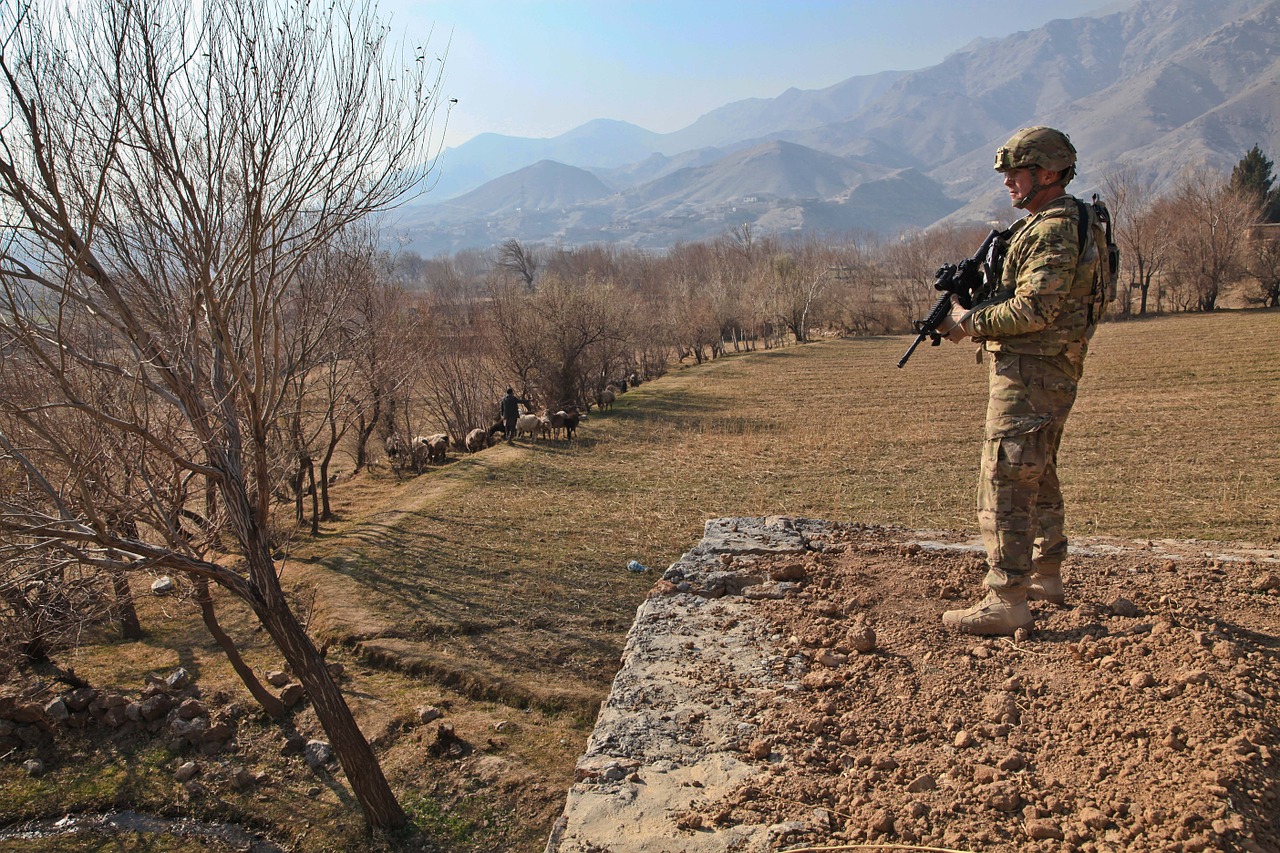With the demise of ISIS imminent, the United States finally seems to be making headway on its “War on Terror.” In his inaugural address, Donald Trump had promised, with his characteristic hyperbole, to “eradicate radical Islamic terrorism completely from the face of the earth.” By helping to defeat ISIS, however, the United States has won only a battle in the War on Terror. To truly vanquish terrorism in the Middle East, Washington has to radically rethink its current strategy.
First, the direct costs of terror to the United States pale in comparison with the exorbitant spending devoted to its eradication. Second, and perhaps even more damning, the U.S. military effort has likely been counterproductive in battling radical Islamist terrorism, which has emerged to a large extent because of, not despite, the War on Terror. If it wants to reduce the threat of radical insurgencies, the United States would be better off promoting democratic institutions and embracing a more principled and balanced foreign policy in the Middle East.
Fighting Fear Itself
If, as U.S. presidents since George W. Bush have continuously asserted, the War on Terror aims to keep Americans safe, then the policy is rooted in a grand miscalculation. Although, since 9/11, foreign-born terrorists have only killed one American per year, Americans in a 2016 Gallup poll named terrorism as the country’s biggest problem. Of course, the psychological fallout from attacks such as the horrific 2016 Orlando nightclub shooting should not be underestimated. But the threat of terror has such a hold on the American psyche partly because politicians willfully exploit it for political gain. Meanwhile, the total costs from the War on Terror will soon reach $6 trillion with little evidence that any of this money has helped prevent another 9/11.
In fact, U.S. military actions abroad seem to have imperiled rather than improved the country’s security. Even the intelligence community was forced to admit in its 2006 National Intelligence Estimate that the War on Terror had actually increased the risk of terrorism. The American national security establishment continues to suffer from the illusion that terrorists act because they “hate our freedoms” and that countering terrorism is solely a question of reducing its supply. But virtually all radical Islamist terrorists since 2001 have described their attacks as acts of revenge for U.S. military actions in the Middle East. Faisal Shahzad, who failed to bomb Times Square in 2010, echoed terrorist leaders like Bin Laden and Zawahiri when he proudly declared, “I want to plead guilty 100 times because unless the United States pulls out of Afghanistan and Iraq … we will attack the United States and be out to get them.” Al-Qaeda’s declared motivation for the 9/11 attacks was to end the presence of infidel American soldiers in Saudi Arabia, home to Islam’s most holy sites. Terrorist groups like the Shia Mahdi Army emerged as a direct response to the US invasion of Iraq, which eventually led, as many key U.S. officials have admitted, to the rise of ISIS.
Supply and Demand
Terrorist insurgencies usually have various causes and often originate from legitimate grievances. Lebanon’s dispossessed Shia and the Gaza Strip’s oppressed Palestinians have naturally flocked to Hezbollah and Hamas, respectively. Similarly, the precipitous rise of ISIS would not have been imaginable without the systematic exclusion of Sunnis from power in Iraq and Syria. The oppression of religious parties by secular dictatorships in Egypt, Algeria, and Morocco has boosted the popularity of more radical groups. As Princeton economist Alan Krueger has written, “countries with low levels of civil liberties are more likely to be countries of origin of the perpetrators of terrorist attacks.” Therefore, the United States should use its clout in the region to encourage inclusive and democratic governance.
On the supply side, most terrorist organizations finance their operations through generous contributions from Middle Eastern countries. While Hezbollah relies on Iranian support, Saudi Arabia and the Gulf states have built up extremist organizations like Jaysh al-Islam and Ahrar al-Sham. It is widely acknowledged that Afghanistan’s Taliban would collapse without continued support from the Pakistani government. America can no longer turn a blind eye to the actions of its allies in the region. If the United States were to withdraw its apparently unconditional support for Saudi Arabia and includes Iran in the regional security architecture, it could counteract the security dilemma dynamic that has led both countries to back destabilizing terrorist groups.
A Clean Slate
The United States may need to use its military to help defeat radical groups like ISIS. But military intervention should always be used with restraint and as part of a comprehensive strategy that seeks to address the underlying causes of local insurgencies. As Shibley Telhami at the Brookings Institution has written, 47 percent of large insurgencies are ended by negotiations, while only a quarter are defeated through military means. Nearly every single American general sent to Afghanistan has come to the conclusion that a political solution is needed to end the perpetual war with the Taliban. To win the War on Terror, the United States needs to finally live up to its lofty rhetoric of championing democracy and human rights while cracking down on sources of finance for terrorism. Even though terrorism is not a major security threat for the United States, it continues to endanger the lives of thousands and displace millions across the Middle East. The United States must not rest on the laurels of its impending victory against ISIS. Unless America fundamentally changes the way it approaches terrorism in the Middle East, real victory seems further than ever.
Image Credit: Pixabay/ArmyAmber
